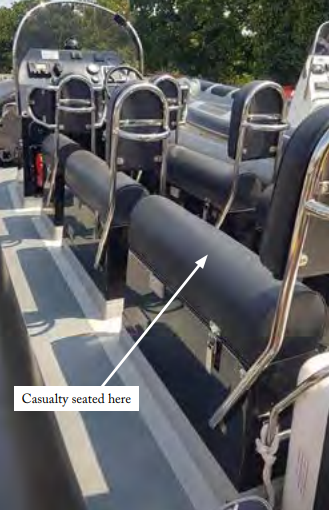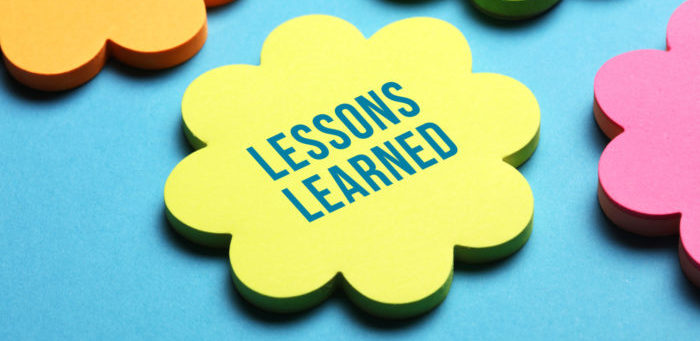In the latest Safety Digest, UK MAIB focused on a serious back injury caused when a RHIB tried to cross the waves of a passing vessel. The incident took place off the South coast of England, while eight passengers enjoyed a teambuilding exercise. UK MAIB highlighted that it is of a great importance to always call and inform the Coast Guard when an injury takes place on board, as they will be able to handle a critical situation.
On the morning the accident occurred, a group of eight passengers enjoyed a corporate teambuilding exercise. Prior the departure, the group gathered on the quayside and received a safety briefing from the skipper of the 8.6m RHIB (rgid-inflatable boat). The skipper helped the passengers don their lifejackets and informed them of actions to take in case of emergency. He concluded the briefing by reading a statement from the RHIB ride company’s insurers, which contained a warning about the physical risks to individuals participating in fast RHIB rides.
The RHIB had two rows of foam-filled jockey seats, behind the skipper’s helm position, as shown in the image.

After advice from a work colleague who had previously been on a RHIB ride, the casualty decided to sit at the back of the boat, having been told that these seats would provide a more comfortable ride.
While the RHIB was sailing, it encountered the waves of a passing vessel; In light of the waves and knowing the possible injuries waves can cause to the passengers, the skipper decided to slow down the boat and crossed the wave at a 90° angle.
Although the first wave was easily crossed, while crossing the second one, the boat landed heavily on the sea, resulting to the female passenger screaming out of severe pain, as she felt the shock of the impact in her back. The skipper immediately acknowledged that that the passenger suffered a serious back injury, so he decided to stop the boat.
After using the boat’s VHF radio to consult a colleague, the skipper made the decision to proceed at slow speed to a nearby marina. He did not call the coastguard.
Following, the skipper made to phone calls to the local ambulance service, requesting it attends the casualty at the marina; Yet, the ambulance never came. Consequently, the injured female passenger was assisted off the boat and taken to the local hospital by her husband for diagnosis and treatment. She remained in hospital for a few days while being treated for a compression fracture of her T12 vertebra.
The UK MAIB highlights how important it is to inform the coastguard at the earliest opportunity, if an emergency arises.
Therefore, in lights of the severe incident, UK MAIB proposes that”
- Always calling the Coastguard in case of an emergency; They can then make available an appropriate level of emergency response in a timely manner. In this case, despite an apparent back injury the casualty was moved, had to walk off the boat, and was transported by car to hospital.
- Lower back compression fractures can occur when a RHIB passenger lands heavily on their seat after being lifted into the air due to the motion of the vessel. Those in control of a boat should be aware that if crossing large waves at an acute angle, the boat speed must be reduced dramatically to prevent it from slamming and potentially injuring its occupants.
- Skippers must ensure that all crew and passengers understand the safety briefings and that the risks and levels of physical stress that they are likely to be exposed to are fully appreciated. A demonstration of the correct posture to adopt and best means of holding on can help passengers understand the brief.
- protect the person’s cervical spine with manual in‑line spinal immobilization
- avoid moving the remainder of the spine































































